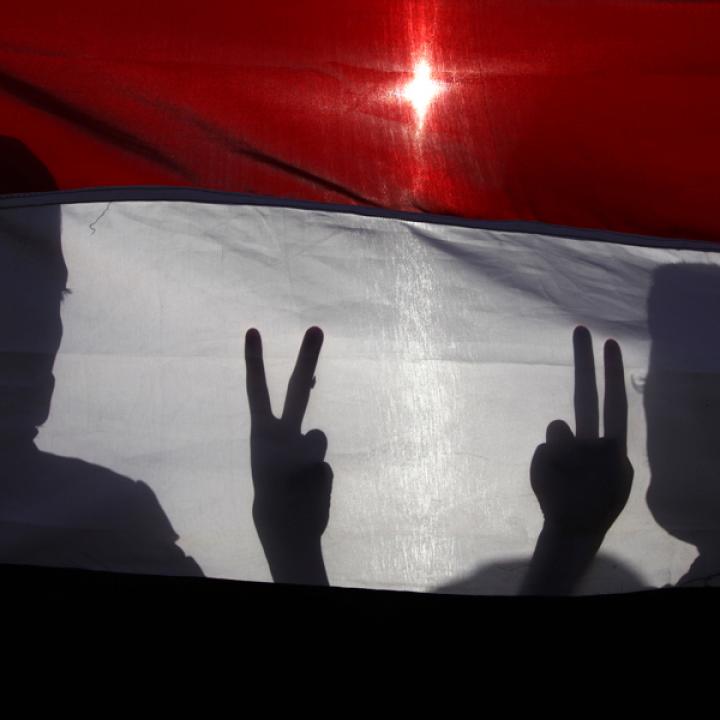
- Policy Analysis
- Policy Alert
Yemen Missile Strike Jeopardizes Peace Talks

U.S.-led diplomatic efforts had aimed to make up for the recent lack of military progress and stave off a humanitarian crisis, but a deadly rebel attack could threaten the planned ceasefire.
On December 14, a missile attack in Yemen killed or injured scores of personnel fighting the Iranian-backed alliance of Houthi rebels and forces supporting former president Ali Abdullah Saleh, casting doubt over this week's scheduled ceasefire and peace talks. The strike reportedly hit a command center of the Saudi-led coalition seeking to restore the government of President Abdu Rabu Mansour Hadi, who was forced to flee the capital and then the southern port city of Aden earlier this year. Coalition forces -- which include Saudi, UAE, and other Gulf elements as well as Sudanese soldiers and even Colombian mercenaries -- have since reoccupied Aden and are slowly pushing toward Sana.
Because of the perceived Iranian link, the Yemen war dominates Gulf media and diplomatic attention, dwarfing concerns about Islamic State activity in Syria, Iraq, Europe, and elsewhere. Gulf state participation in the U.S.-led anti-IS effort in Syria has tailed off this year as their leaders began to concentrate on Yemen.
Lack of military progress and concern about a potential humanitarian crisis prompted UN-brokered peace talks set to begin in Switzerland on December 15, coinciding with a ceasefire scheduled for midnight local time tonight. Yet both initiatives are now in doubt.
The missile's reported target was a concentration of coalition forces involved in liberating the southwestern city of Taizz. The troops were in the Dhubab area near the strategic Bab al-Mandab Strait. News reports have identified the missile as a Russian-built Tochka, usually known by its NATO codename Scarab, with a range of 43 to 115 miles depending on the type. It has inertial guidance, meaning it can be targeted on a specific location where its fragmentation warhead can do the most damage.
Among the dead are the commander of the Saudi special forces contingent in Yemen and his Emirati counterpart. If the rumored death toll is accurate, it will be the deadliest attack since a September Tochka strike killed forty-five Emirati troops and several from Bahrain. In that incident, the missile appeared to hit an arms dump, and sources attributed the high death toll to faulty ammunition storage.
Whatever the final count, today's attack is a setback for U.S. diplomatic efforts, which run in parallel with American intelligence and logistics support for the Gulf coalition forces. It also illustrates the limitations of near-daily heavy airstrikes against the Houthi/Saleh forces, which have either managed to hide Scarab missiles or been resupplied with them despite a UN embargo. An additional concern is that the high Saudi and Emirati public approval for the war could wane, forcing a change in policy or military leadership.
Simon Henderson is the Baker Fellow and director of the Gulf and Energy Policy Program at The Washington Institute.



